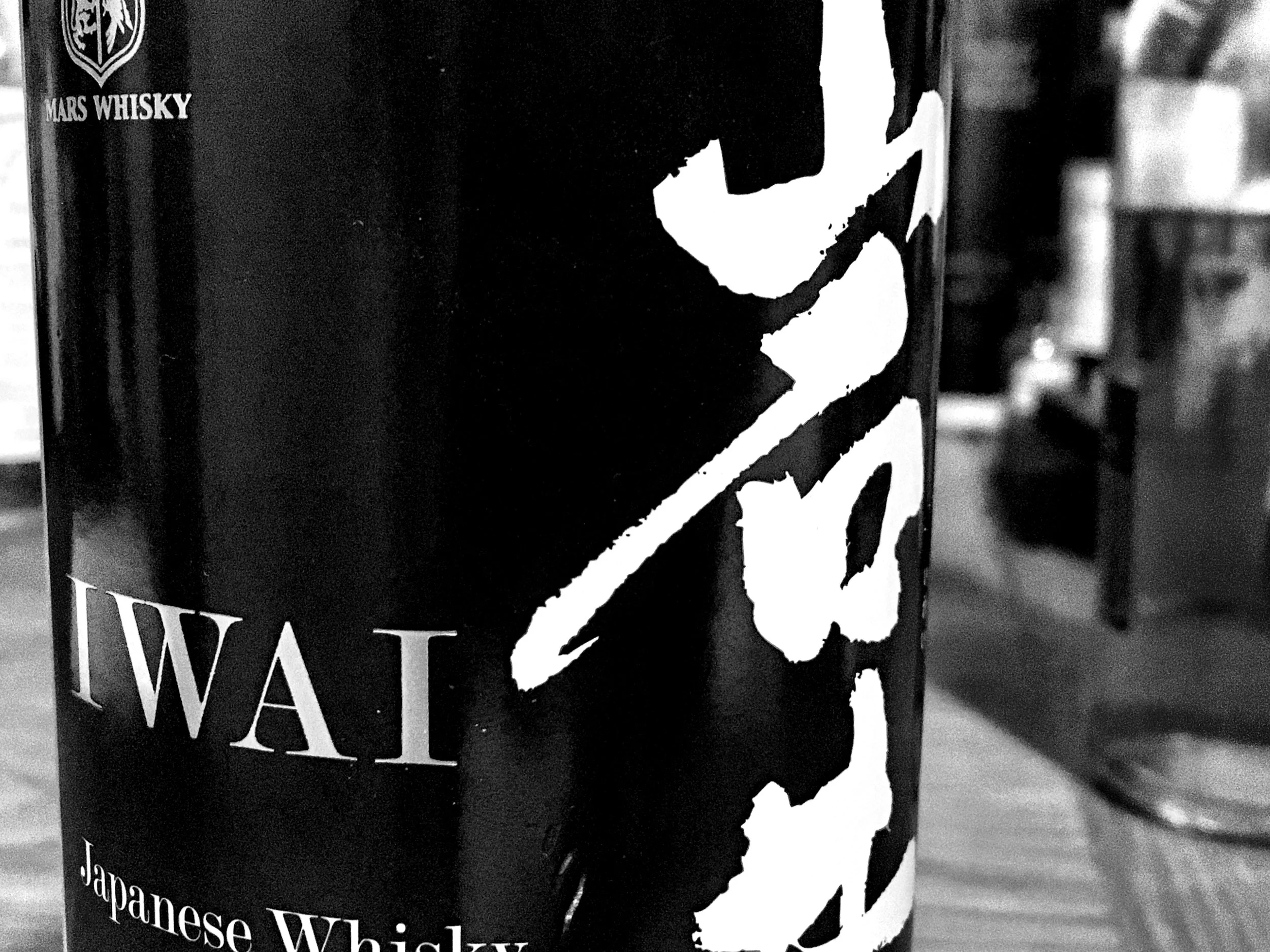A series of beautiful moments occur once you know how to trust your palate. As I looked up a bit of information on the Iwai recently, I couldn't help but grin and shout, "I knew it!"
Before I get to what it is that I knew, let's talk a little about Mars. For one thing, and at least over here in the US, it isn't one of the Japanese distilleries of note. Typically, aficionados of Japanese whisky are likely to cite the heavy hitters when picking a favorite: Yamazaki, Hakushu, Yoichi, and Miyagikyo are name-droppable. And for good reason: they're generally thought of as being at least as good as the great Scottish distilleries when it comes to the care and craft they put into their spirits—perhaps better, some might argue.
But what all of those distilleries have in common is a reputation for making single malt whisky. That is, whisky made from 100% malted barley. Mars, on the other hand, is in the business of producing blended whisky, which is more widely-consumed internationally. Nevertheless, as the prices of Japanese malts like Yamazaki edged higher and higher, I noticed that Iwai slipped into the market sometime around 2014 (give or take) to capitalize on the boom.
“I honestly don’t mind the Mars approach to Iwai, but its qualities make it a bit of a misfit.”
So is Iwai a Japanese whisky? Of course it is. It's got some big-ass kanji on the side (which stands for "IWAI," I imagine) to remind you of it, lest you forget. However, Iwai is strikingly different from what one would experience in comparison to one of those "typical" Japanese malts mentioned earlier. If you're snagging this simply because it's from the land of the rising sun, caveat emptor.
Getting to the point: when I said "I knew it!" the "it" I was referring to was corn, which their website verifies is the spirit's heavy-lifter. Since Iwai isn't a single malt, Mars has free reign to use whatever secondary grains they want to as a distillation base. Here (and anywhere else, really), the use of corn results in a buttery and sweet spirit. As a result, the Iwai tastes much closer to a bourbon than it does to a scotch. That aspect is probably helped along a little by the fact that the whisky is additionally matured in bourbon barrels, so there you go.
Where the Iwai distances itself from bourbon is in its lightness. It's not barrel charred nor matured in virgin wood, so the oak influence is scaled back considerably. It's also 40% ABV, so it's not nearly as much of a punch to the mouth as something like Knob Creek or Wild Turkey 101, though true bourbon purists might argue that 80-proof hooch isn't "delicate." Calling a spade a spade, they might just see it as flat-out weak. I don't necessarily share that view, but remember that Maker's Mark fans had a conniption fit when the distillery decided they were going to drop the ABV from 45% to 42%.
As an irregular bourbon drinker, I honestly don't mind the Mars approach to Iwai. But you know what's also buttery, soft, and uncomplicated? Mellow Corn. And that's $11 a bottle. I'm tempted to say that I could spike a 2oz pour of Mellow Corn with about a 3/4oz dash of Evan Williams Black and come out with something pretty close to the Iwai: that is, corn-heavy and bourbony enough.
As such, the Iwai's a bit of a misfit. It's trying to court consumers smitten with buying "a Japanese whisky," though in comparison to recognizable single malts (and even to blends like Nikka's Coffey Grain or Suntory's Toki), it isn't anywhere in the same league taste-wise. Here, drinkers looking for Japanese craft and refinement will be disappointed. On the other hand, for those willing to recognize the Iwai on its own merits as uncomplicated and sweet, the price is too high at $30.
If you're undeterred by all that, the style may be worth a try. Assuming you can find it somewhere where the owner didn't notice those neato symbols on the side and jack up the price to $75 just because.


